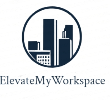Introduction Pune has become one of India’s most vibrant startup hubs, with thriving communities in Baner, Hinjewadi, Kharadi, and Koregaon Park. These startups are competing not only in their industries but also in how they present themselves to clients, investors, and employees. In this environment, office interiors matter more than ever. A skilled office interior designer in Pune helps startups create workspaces that are functional, stylish, and cost-effective making them stand out in the city’s competitive ecosystem. Role of Design in Startup Branding For startups, the office isn’t just a workplace it’s part of the brand story. The design of a space communicates culture, values, and ambition. Colors and graphics can mirror the startup’s brand identity. Reception areas can be designed to leave a strong impression on clients and investors. Creative layouts can reflect innovation and forward-thinking. When a startup partners with an office interior designer in...
Introduction In cities like Pune, where office rentals can be costly, many startups and small businesses operate in compact spaces. But small doesn’t mean limiting. With the right design approach, even a modest office can look spacious, professional, and welcoming. A professional office interior designer in Pune knows how to maximize every inch without compromising on style or comfort. Smart Storage Solutions Clutter is the biggest enemy of small offices. Papers stacked on desks, cables lying around, or unused furniture can make the space look even smaller. Designers use smart storage to solve this problem. Wall-mounted cabinets keep floors clear. Hidden storage under desks or benches saves space. Multi-purpose furniture like filing cabinets that double as side tables reduces redundancy. For businesses in Pune where every square foot matters, clever storage ensures a tidy workspace that looks bigger and functions better. Compact but Stylish Furniture Small offices ...
